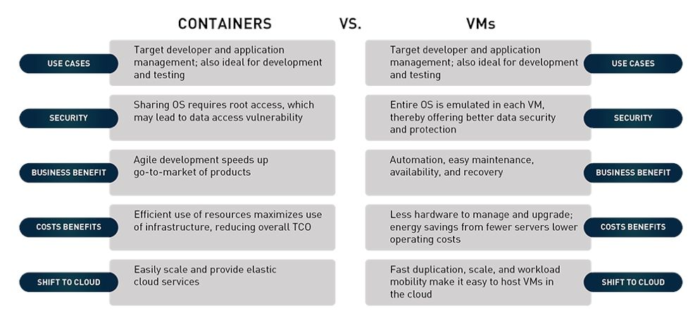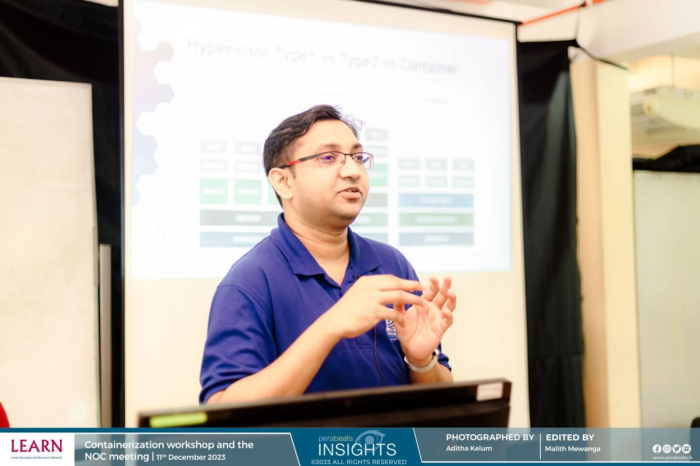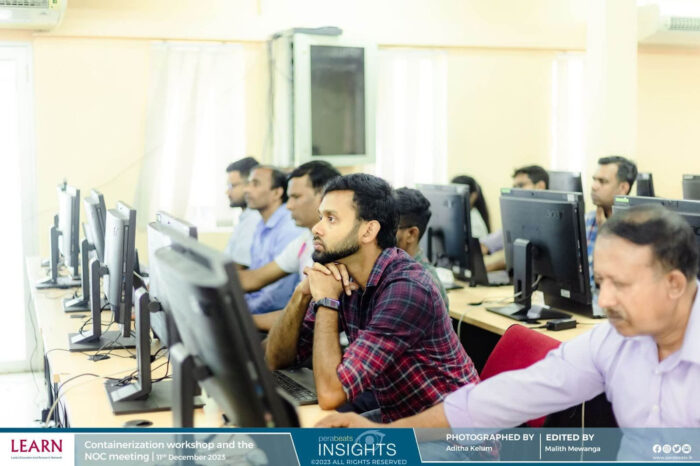In the ever-changing world of networking technology, staying ahead of the curve empowers network engineers to skillfully design, secure, and manage modern networks. A rising trend in recent years is containerization, as it enhances network management efficiency while fostering flexibility and scalability. Acknowledging its crucial role in the future of network management, LEARN recently hosted a three-day workshop on the topic. Tailored for senior network professionals overseeing campus networks at local higher education institutions, the workshop equipped them with crucial knowledge and hands-on experience in containerization.
The workshop’s cohort of 50 networking professionals was guided by Thilina Pathirana, a Research Fellow at the University of Stavanger, whose journey into the topic centred around the widely-used Docker and Kubernetes platforms. Throughout the workshop, participants explored the fundamental concepts of containerization, gained an in-depth exploration of Docker’s components, and understood how to leverage Kubernetes’ robust orchestration capabilities. Across the three days, the common thread between each session was a priority for not only theoretical understanding but also the practical applications of containerization in the real world.
Introduction to containerization and its benefits
On the first day of the workshop, participants were immersed in an introduction to containerization as a concept. It commenced with a comprehensive review of the fundamentals of cloud infrastructure and virtualization, emphasising the pivotal role virtualization plays in modern enterprise IT architecture. With its array of advantages, including a significant reduction in IT expenditure, streamlined management processes, minimal downtime, heightened resilience, and expedited resource provisioning, virtualization has become the prevailing norm in modern enterprise IT architecture. Building upon this foundation, the presentation transitioned to the realm of containerization.
What is containerization?
Positioned as the logical progression beyond virtualization, Thilna explained that containerization emerged as a transformative methodology for packaging software code. It involves the use of containers, which are used to encapsulate not only the application but also the operating system, libraries, and dependencies, resulting in a single executable entity. Characterised as lightweight and portable, they represent a standardised packaging for software dependencies, functioning seamlessly across major Linux distributions, MacOS, and Windows. Thus, containers offer a resource-efficient approach for developers to create and deploy applications swiftly and securely, embodying the principle of “write once and run anywhere.”
What are the benefits of containers?

Following an introduction to the concept, the inherent benefits of containerization were highlighted. The primary benefit of containers, Thilina explained, is the efficiency of bundling applications with configuration files, libraries, and dependencies into a singular executable package. Unlike traditional methods, containers eliminate the need for a redundant copy of the operating system, utilising runtime engines like Docker instead to facilitate sharing resources with the host OS.
Additionally, containers having a smaller footprint and faster startup times lead to higher server efficiency. Beyond this, containers offer enhanced security through isolation, prevention of malicious code spread, and the portability of applications across diverse platforms. Ultimately, containers and virtualization with virtual machines are both used to run multiple software applications in a single environment. However, as we’ve seen, container technology offers additional advantages beyond virtualization.
A practical hands-on guide to mastering containerization

As the workshop progressed, a series of hands-on sessions unfolded, providing participants with a dynamic and engaging environment. Through these practical exercises, participants not only fortified their understanding of containerization’s theoretical foundations but also gained a practical grasp of its tangible benefits. The hands-on sessions were designed to bridge the gap between theory and application, allowing participants to actively implement concepts introduced during the theoretical segments. As such, they were instrumental in equipping participants with the skills needed to utilise containerization in real-life scenarios.
Getting started with containerization: A hands-on practical guide
On Day 01, after the theoretical introduction, the workshop progressed to a hands-on practical session, where participants began applying their newfound knowledge. The practical segment commenced with an introduction to Docker, an open-source platform renowned for allowing developers to seamlessly build, deploy, run, update, and manage containers. It began with an overview of Docker’s terminology, laying the groundwork for participants to delve into a comprehensive hands-on exercise.
This exercise then proceeded to guide them through the step-by-step process of setting up Docker, learning its commands and capabilities, and finally deploying applications using Docker Compose. The session then concluded by offering participants valuable troubleshooting insights and best practices for efficiently utilising Docker to manage containers. Thus, providing a hands-on experience for participants to solidify their understanding of the platform’s fundamental principles.
Mastering managing containers at scale with Kubernetes

Fast forward to Day 02 of the workshop and building upon the previous day’s knowledge, the focus moved towards container orchestration with the Kubernetes platform. Participating in a hands-on session, attendees were guided through the step-by-step process of setting up Kubernetes and its basic commands to orchestrate containers with the platform effectively.
Building upon this foundational knowledge, the hands-on session transitioned to the practical deployment of a sample application using Kubernetes. Participants not only witnessed the intricacies of deploying an application within a containerized environment but also delved into the nuances of managing and scaling these applications dynamically. As the workshop progressed, the session concluded with a comprehensive introduction to Kubernetes networking. This segment illuminated the networking capabilities inherent in Kubernetes, providing participants with insights into how containerized applications communicate within a Kubernetes cluster.
In essence, Day 02 of the workshop unfolded as a hands-on journey into the realm of container orchestration, leveraging Kubernetes as the central orchestrator. The combination of theoretical insights and hands-on experience equipped participants with a practical understanding of orchestrating containers in a distributed computing environment.
Rollbacks and securing containerized applications
On the concluding day, participants engaged in another set of hands-on sessions about Kubernetes capabilities, which built upon their knowledge from the previous day. Day 3 began with a hands-on introduction to monitoring Kubernetes, providing insights into overseeing orchestrated containers. The subsequent guide addressed critical aspects of Kubernetes deployment, emphasising robust strategies and rollbacks for updates. The workshop then explored security, specifically managing SSL/TLS certificates, and educating participants to secure their containerized applications.
Concluding with a final hands-on session, the workshop transitioned to participant engagement, allowing feedback, questions, and an overview of the LEARN cloud. This interactive segment served as a platform for sharing experiences, clarifications, and content consolidation. In essence, the third day was a culmination of hands-on experiences, reinforcing participants’ ability to apply knowledge in practical scenarios.
The positive impact of workshops by LEARN

Reflecting on this insightful workshop, it’s clear that participants gained essential new skills in containerization. The added benefit of collaborating with peers from different higher educational institutions created an immersive learning environment. Alongside the hands-on guidance from the instructors, participants developed practical insights and expertise in implementing containerization effectively, utilising a powerful set of tools. Importantly, the workshop goes beyond individual skill enhancement.
This containerization workshop by LEARN stands as the latest example of the organisation’s commitment to upskilling staff responsible for managing campus networks. By creating a platform for knowledge exchange and encouraging collaboration among professionals from various institutes, LEARN not only elevates the capabilities of its member institutes but also fosters a community of shared learning and innovation. These efforts have a profound impact, enabling member institutes to unlock greater value from their networks. In an era of constant technological advancements, LEARN’s proactive approach to education and upskilling stands as a testament to its role as a catalyst for progress within the academic community.
